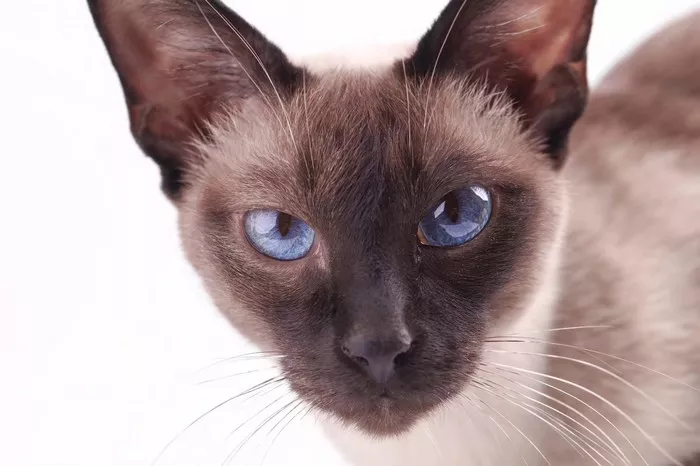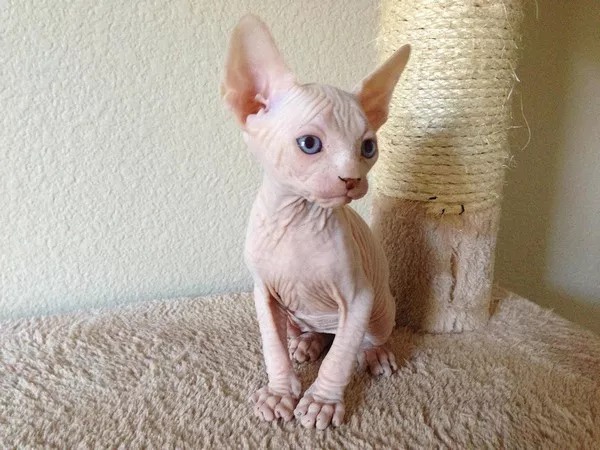Siamese cats, with their striking blue eyes, sleek bodies, and distinctive color points, have captivated cat lovers for centuries. While these feline beauties are known for their elegance and intelligence, there have been claims that Siamese cats are prone to certain health problems. In this article, we delve into the health profile of Siamese cats, separating fact from fiction and providing a comprehensive understanding of their unique health considerations.
1. The Siamese Cat Breed:
Siamese cats originated in Thailand (formerly Siam) and were introduced to the Western world in the late 19th century. They quickly gained popularity due to their striking appearance and engaging personalities. Siamese cats are medium-sized with a muscular build, short coat, and distinct color points on their ears, face, paws, and tail. Their almond-shaped blue eyes are one their most recognizable features.
2. Genetic Factors and Health:
Like any other breed, Siamese cats may have certain genetic predispositions to specific health conditions. However, it is important to note that not all Siamese cats will develop these, and responsible breeding practices can help minimize the risk. Here are some health concerns that have been associated with Siamese cats:
a. Progressive Retinal Atrophy (PRA):
PRA is inherited eye disorder that causes progressive degeneration of the retina, leading to vision loss and eventual blindness. While PRA has been reported in Siamese cats, it is not exclusive to the breed. Responsible breeders perform regular eye examinations and genetic testing to identify carriers and reduce the incidence of PRA.
b. Crossed Eyes (Strabismus):
Strabismus, or crossed eyes, is a condition where the eyes do not align properly. Siamese cats are more prone to this condition due to a genetic predisposition. While it may affect their appearance, most cases of strabus in Siamese cats do not cause any functional problems or discomfort.
c. Dental Issues:
amese cats, like many other breeds, can be prone to dental problems such periodontal disease and tooth decay. Regular dental care, including brushing their teeth and providing appropriate chew toys, can help maintain good oral health.
3. Respiratory Conditions:
Siamese cats are known for their vocal nature and distinctive voice. However, their unique anatomy can make them more susceptible to certain respiratory conditions:
a. Asthma:
Siamese cats have been reported to have a higher incidence of feline asthma compared to some other breeds. Feline asthma is a chronic inflammatory condition that affects the airways, leading to coughing, wheezing, and difficulty breathing. Environmental triggers, such as dust, pollen, or cigarette smoke, can exacerbate the condition. Proper management, including minimizing exposure to triggers and medication prescribed by a veterinarian, can help control feline asthma in Siamese cats.
b. Upper Respiratory Infections (URIs):
Siamese cats may be more prone to upper respiratory infections, which are typically caused by viral bacterial agents. Symptoms include sneezing, nasal discharge, coughing, and fever. Prompt veterinary care, supportive treatment, and vaccination protocols can help prevent and manage URIs in Siamese cats.
4. Amyloidosis:
Amyloidosis a rare condition that can affect Siamese cats, particularly those with liver involvement. It involves the abnormal deposition of amyloid protein in various organs, leading to organ dysfunction. Clinical signs may include weight loss, poor appetite, vomiting, and jaundice. While amyloidosis is uncommon, regular veterinary check-ups and monitoring can aid in early detection and management.
5. Hyperthyroidism:
Hyperthyroidism, an overactive thyroid gland, is more commonly associated with older cats. While Siamese cats are not specifically predisposed to this condition, it can occur in any breed. Hyperthyroidism can cause weight loss, increased appetite, restlessness, and other symptoms.
Conclusion
While Siamese cats are prone to certain health issues, many can be prevented or successfully managed with proactive veterinary care and attentive ownership. Their extroverted personality means they flourish in an enriched environment with plenty of care and interaction. With a commitment to their wellbeing, most Siamese cats live long and healthy lives bringing years of companionship. Work closely with your veterinarian and breeder to ensure your talkative cat stays happy and healthy.


























